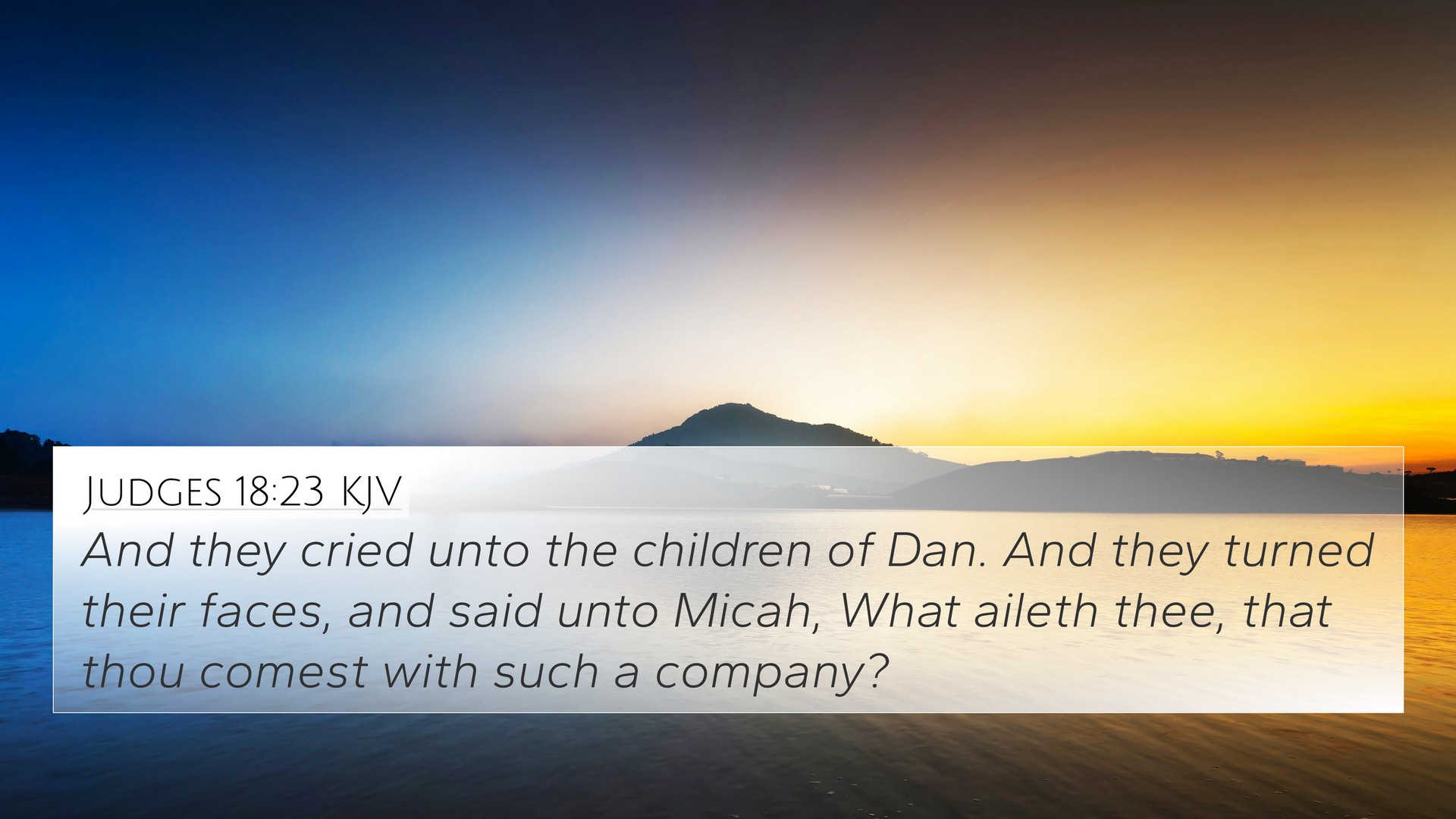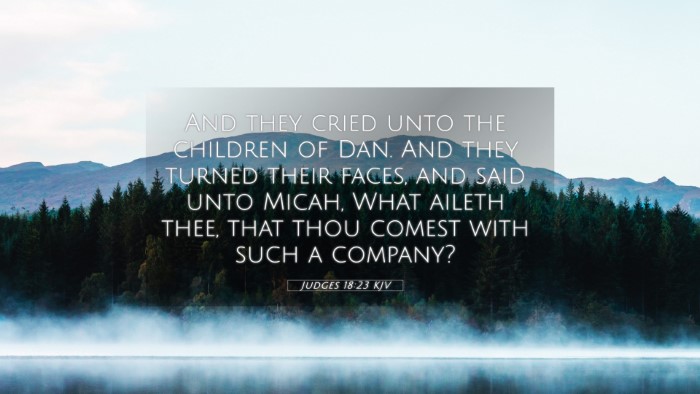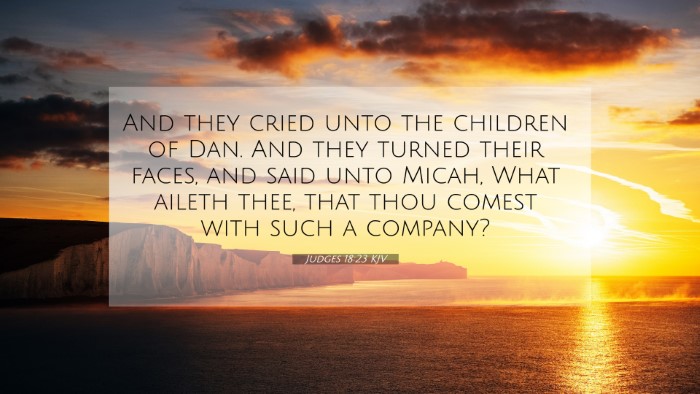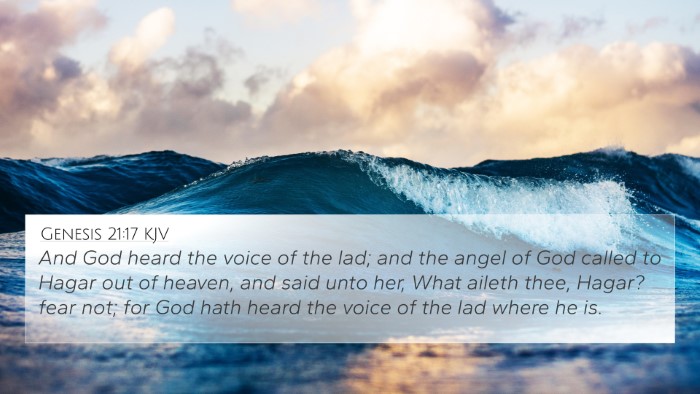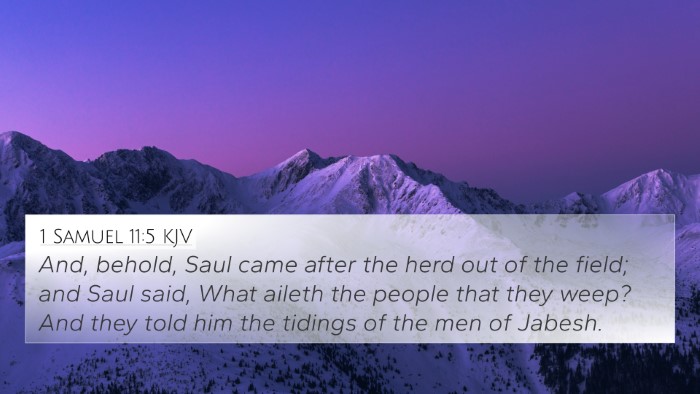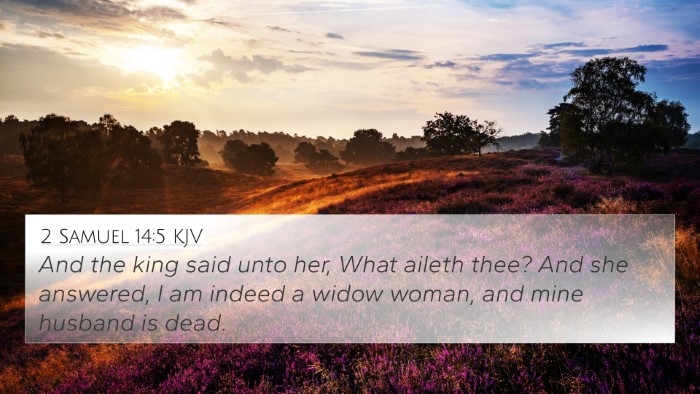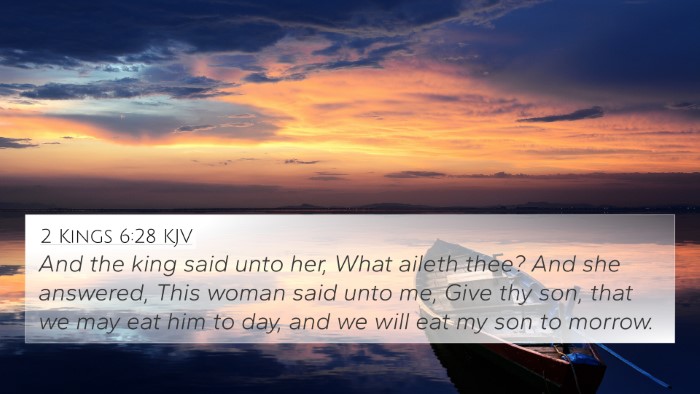Understanding Judges 18:23
Judges 18:23 states: "And they cried unto the children of Dan. And they turned their faces, and said unto Micah, What aileth thee, that thou comest with such a company?" This verse depicts an interaction between the spies from the tribe of Dan and Micah, highlighting the complexities of tribal relations and the themes of loyalty and conflict within the context of Israel's early history.
Historical Context
The period of the Judges was marked by a lack of centralized leadership in Israel. Each tribe was largely responsible for its own governance, which often led to territorial disputes and confrontations. Micah, mentioned in this verse, had established a personal cult, which exemplifies the religious confusion and the apostasy prevalent during this time.
Commentary Insights
Insights from public domain commentaries provide a deeper understanding:
- Matthew Henry: He emphasizes the chaotic state of Israel's moral and spiritual life during this period. The interaction reveals the misguided priorities of the tribes, showcasing that the personal religion of Micah was not aligned with the worship prescribed by God, highlighting the dangers of individualism in religion.
- Albert Barnes: Barnes notes that the gathering of Dan's warriors indicates the procedural nature of inter-tribal relationships at the time. He highlights the underlying tension as the tribe of Dan seeks to assert itself, which reflects the broader themes of struggle and identity within Israel's factions.
- Adam Clarke: Clarke provides additional cultural context by describing the role of Micah and the significance of the idols he created. The verse illustrates the conflict between personal faith and communal responsibility, ultimately questioning the legitimacy of Micah's cult in the greater covenantal context of Israel.
Thematic Connections
This verse connects to various themes within the Bible, particularly:
- Idolatry: Micah's idols are a direct violation of the first commandments, creating a parallel with other scriptural warnings against idol worship (Exodus 20:4-5).
- Tribal Allegiance and Conflict: The tension between tribal members is mirrored in other parts of the Bible such as Genesis 49:16, where tribal destinies are foretold.
- Loyalty Dynamics: This verse showcases the dynamics of loyalty within tribes, as seen in Judges 12:4-6, further elaborating on the conflicts that arise from such loyalties.
Cross-References
Several key verses provide contextual connections that enrich our understanding of Judges 18:23:
- Exodus 20:4-5: Direct commandments against idol worship highlighting the spiritual disobedience of the Israelites.
- Judges 17:5: Micah's setup of idols which precedes the events at 18:23, showcasing his personal religious practices.
- 1 Samuel 10:26: Connection to issues of tribal identity and leadership in Israel, as Saul is introduced.
- Judges 20:13: Confrontation themes representing further tribal conflicts similar to those seen in Judges 18.
- 1 Kings 12:28-30: The establishment of idolatry by Jeroboam, paralleling Micah’s practices.
- Jeremiah 7:18: An admonition against false worship reflecting the ongoing struggle in Israel's fidelity to God.
- Matthew 10:36: A New Testament reflection on familial and tribal divisions, echoing the tensions of Judges.
Conclusion
Judges 18:23 serves as a pivotal moment illustrating inter-tribal dynamics and the prevalent idolatry within Israel. It encourages readers to explore the deeper implications of loyalty, divine commands, and personal faith versus communal responsibility. As we examine this passage along with its connected scriptural references, we gain significant insights into the historical and spiritual fabric of the Israelite experience, ultimately leading to a more profound understanding of God’s covenant with His people.
Further Study Strategies
For those interested in a deeper study of cross-referencing, consider employing the following:
- Bible concordance: Use a Bible concordance to locate terms related to idolatry and tribal conflicts.
- Bible cross-reference guide: Utilize guides to connect themes between the Old and New Testament.
- Cross-reference Bible study: Engage in studies that highlight the thematic links between verses.
- How to use Bible cross-references: Familiarize yourself with various cross-reference systems available in study Bibles.
- Bible reference resources: Explore comprehensive resources that offer insights on inter-textual connections.
